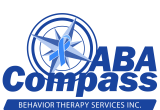Autism is a complex neurodevelopmental disorder that affects individuals to varying degrees. Children with autism often require specialized care that is catered to their individual needs. Applied Behavior Analysis (ABA) therapy is an intervention that has been proven to be effective in treating autism. However, it is essential to choose the right ABA therapist to ensure that your child receives the necessary care. Here are five critical questions that you must ask when looking for an ABA therapist.
 What experience do you have working with children with autism?
What experience do you have working with children with autism?
It is essential to opt for an ABA therapist who has experience working with children on the autism spectrum. They should be familiar with various therapeutic techniques that can help your child cope with their symptoms. This will give you an idea of the therapist’s level of expertise and help you make an informed decision.
What are your qualifications and training?
ABA therapists are required to have specialized training and certification to practice. Ensure that the therapist has the necessary qualifications and certifications before making a decision. Look for therapists who are Board Certified Behavior Analysts (BCBAs). They have completed extensive training in ABA therapy and are more likely to have the skills and experience necessary to work with your child.
 How will you develop an ABA therapy program for my child?
How will you develop an ABA therapy program for my child?
An ABA therapy program should be tailored to meet your child’s individual needs. A good therapist will work with you to develop an individualized treatment plan that is tailored to your child’s specific strengths, weaknesses, and goals. The therapist should develop a program that will help your child acquire new skills, maintain current skills, and manage their behavior effectively.
How do you track progress and make adjustments to the ABA program?
Tracking progress is an essential part of an ABA therapy program. A good therapist should establish measurable goals and track your child’s progress closely. They should use data-driven methods to monitor your child’s progress and make adjustments to the program as necessary. This will ensure that your child continues to make progress toward their goals.
What is your approach to communication with families?
Communication is key when working with an ABA therapist. The therapist should communicate with you regularly, keeping you updated on your child’s progress and any changes to the therapy program. You should feel comfortable asking questions and providing feedback to the therapist. A good therapist will work collaboratively with you, ensuring that you are an essential part of your child’s therapy team.
Choosing the right ABA therapist for your child is crucial to their success in therapy. By asking the right questions, you can find a qualified, experienced therapist who provides individualized care that is right for your child. Don’t be afraid to ask questions and advocate for your child’s needs. With the right therapist, your child can achieve their full potential.


